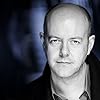Ask the Author: David Bradwell
“Ask me a question.”
David Bradwell
Answered Questions (6)
Sort By:

An error occurred while sorting questions for author David Bradwell.
David Bradwell
I've never suffered from writer's block as such. By doing a thorough outline before starting to write, a lot of the hard thinking has been done already. And if you get stuck in one place you can always move onto another area instead. Sometimes there are days when it's tricky to be inspired, but those are a great time to go back, re-read, and tweak what you've already written.
David Bradwell
Creating characters that you want to spend time with is the starting point. It's a huge amount of fun. But when a complete stranger says lovely things and leaves a five star review there's an enormous sense of achievement
David Bradwell
Advice is tricky because it really depends on where you're starting from. But the three things that made the most difference to me were:
1. Scrivener: this is a phenomenal piece of software that makes writing a joy. Instead of a huge, unwieldy Word document, you've got a chapter-by-chapter document tree. Spend half an hour learning the basics and you'll never go back.
2. A thorough outline: some people swear by a different approach, and just write a first draft to see where it goes, but I'm definitely a fan of the outline: a scene-by-scene breakdown of the whole book that lets you see exactly where the strengths and weaknesses are, making it easy to fix issues, plant clues, establish red herrings, and make notes and ideas for dialogue. Some scenes may be a couple of sentences. Others can be a thousand words. But once the outline is finished you know that you can approach the writing with the confidence that everything will work. That said, the story will go off on its own natural tangents as it develops, but you know there's always a clear path to go back to.
3. Get a good editor. It's not cheap but it's transformative and worth every penny. A structural edit, especially on your first novel, will make a huge difference - not just to that book, but to your entire approach going forward.
Oh, and read aloud, especially dialogue. And most of all, have fun.
1. Scrivener: this is a phenomenal piece of software that makes writing a joy. Instead of a huge, unwieldy Word document, you've got a chapter-by-chapter document tree. Spend half an hour learning the basics and you'll never go back.
2. A thorough outline: some people swear by a different approach, and just write a first draft to see where it goes, but I'm definitely a fan of the outline: a scene-by-scene breakdown of the whole book that lets you see exactly where the strengths and weaknesses are, making it easy to fix issues, plant clues, establish red herrings, and make notes and ideas for dialogue. Some scenes may be a couple of sentences. Others can be a thousand words. But once the outline is finished you know that you can approach the writing with the confidence that everything will work. That said, the story will go off on its own natural tangents as it develops, but you know there's always a clear path to go back to.
3. Get a good editor. It's not cheap but it's transformative and worth every penny. A structural edit, especially on your first novel, will make a huge difference - not just to that book, but to your entire approach going forward.
Oh, and read aloud, especially dialogue. And most of all, have fun.
David Bradwell
Book three in the series: it's set in 1995 at the end of the war in Bosnia although that just provides the historical context. What if the battle moved to London and corporate boardrooms? What if there was a massive shipment of guns heading to the UK from the Balkans? And what if the only person who could stop it was also on the run from the police after being wrongly accused of a whole host of crimes? Add in a touch of humour, abductions, poisonings, and lashings of action and you've got book three - coming late 2018.
David Bradwell
I just find it immensely therapeutic. Lights low, candles on, music softly in the background and then it's time to disappear into a world in which anything can happen, and often does. It comes down to a fondness for the characters really. Anna makes me laugh. When I finished Cold Press I spent the first few days moping as though I'd lost a really good friend, so I just had to bring her back and see what happened next.
David Bradwell
Having spent a lot of time with Anna and Danny in Cold Press and Out Of The Red, it occurred to me that it would be fun to examine their backstory, and hence In The Frame - the series prequel novella. They met while they were students, but what if it was something dramatic that brought them together? How did their friendship forge? And why exactly is Anna so convinced she's utterly hopeless at relationships. I visited the archive at a London university to research the period details, student protests, and even bar promotions of the era, then wrapped it all up in a locked-door style mystery that hopefully is as intriguing to read as it was fun to concoct.
About Goodreads Q&A
Ask and answer questions about books!
You can pose questions to the Goodreads community with Reader Q&A, or ask your favorite author a question with Ask the Author.
See Featured Authors Answering Questions
Learn more

